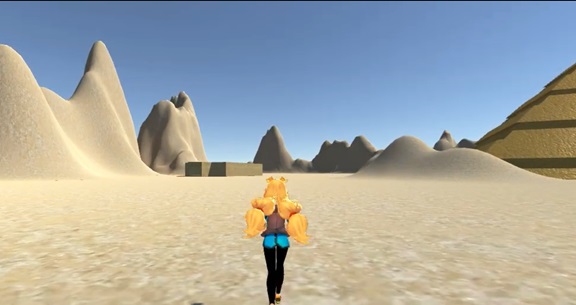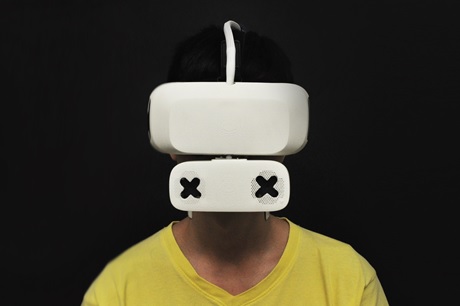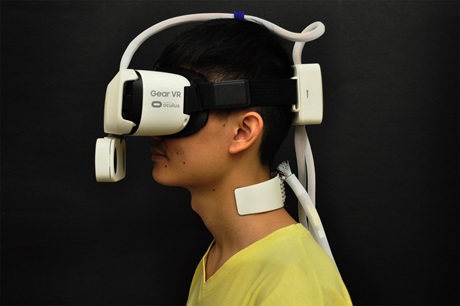
Ambiotherm
Overview
Enhancing sense of presence in Virtual Reality (VR) by simulating real-world environmental conditions.
Key Problem(s)
Traditionally, VR systems simulate physical presence in an environment through visual and auditory stimuli. By utilizing only two of the human sense, this approach to VR limits the number of modalities that are engaged, in turn having a negative effect on the user's sense of immersion during the VR experience.
Objective
By providing the user with a combination of visual, auditory, thermal and wind sensations, Ambiotherm aims to increase user's sense of presence in VR experiences by simulating real-world environmental factors such as ambient temperatures and wind patterns.
Solution
Ambiotherm consists of a wearable accessory for the HMD and a mobile application, which generates interactive VR environments and controls the thermal and wind stimuli. The thermal stimulation module is attached to the user’s neck while two fans are focused on the user’s face to simulate wind conditions.
Deployment and Usage
Ambiotherm was showcased at the following locations:
- Innovfest Unbound 2017
- UIST 2016
Publications and Press
Publications:
- [UIST '16 Adjunct] AmbioTherm: Simulating Ambient Temperatures and Wind Conditions in VR Environments
- [CHI '17] Ambiotherm: Enhancing Sense of Presence in Virtual Reality by Simulating Real-World Environmental Conditions
Patents:
- [US Provisional Patent No. 62/408,319] AmbioTherm: Simulating Ambient Temperatures and Wind Conditions in VR Environments
Media Mentions:
Gallery




Project Contact
Yen Ching-Chiuan
didyc at nus.edu.sg
Team Members
Pravar Jain
David Tolley
Nimesha Ranasinghe
Shienny Karwita Tailan
Raymond Hon Sui Ming
Eason Chow Wai Tung
Jolene Ng Jia Ying
Ellen Yi-Luen Do